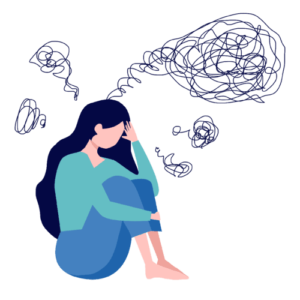
Depression Test
Answer these simple questions to understand more about your Depression. We share instant results and keep your information confidential.

What is Depression Test?
Depression assessment is a structured evaluation conducted by mental health professionals to determine the presence and severity of depressive symptoms in an individual. It typically involves standardized questionnaires, interviews, and observation to assess the person’s emotional state, thoughts, behaviors, and physical symptoms. The assessment helps in diagnosing depression, ruling out other conditions, and planning appropriate treatment. Accurate assessment is crucial for providing timely and effective support to those experiencing depression.
Who can benefit from this Depression Test?
Depression assessment can benefit anyone who may be experiencing symptoms of depression or related emotional difficulties. This includes individuals who feel persistently sad, fatigued, or disinterested in daily activities, have changes in appetite or sleep patterns, or struggle with concentration and decision-making. People facing stressors, life changes, or traumatic events can also benefit. Accurate assessment helps identify those in need of support and allows for appropriate interventions, such as therapy, medication, or lifestyle adjustments, to improve their mental well-being and overall quality of life.


Depression Test Accuracy
The accuracy of depression assessment can vary depending on the tools and methods used, as well as the experience of the professionals conducting it. Standardized and validated assessment tools generally have good reliability and validity in identifying depressive symptoms. However, misdiagnosis or underdiagnosis can still occur due to the complexity of depression and the potential overlap with other mental health conditions. Regular training and ongoing evaluation of assessment practices can help improve accuracy. Early detection and comprehensive evaluation are crucial to ensure appropriate treatment and support for individuals experiencing depression.
Types of Depression Test
Beck Depression Inventory (BDI):
Self-report questionnaire measuring depression severity based on feelings, behaviors, and physical symptoms.
Hamilton Rating Scale for Depression:
Clinician-administered scale assessing the severity of depressive symptoms in patients.
Patient Health Questionnaire-9:
Quick and widely used self-assessment tool to screen and monitor depression symptoms.
Montgomery-Åsberg Depression Rating Scale:
Clinician-rated scale evaluating the severity of depression symptoms.
Geriatric Depression Scale:
Designed for elderly individuals to assess depressive symptoms and mood changes.
Children’s Depression Inventory:
Self-report questionnaire specifically developed to evaluate depression symptoms in children and adolescents.
Handling Depression
Here are some self-help strategies that may complement professional guidance:
- Reach out for support: Talk to friends, family members, or someone you trust about what you’re going through. Isolation can exacerbate depression, so maintaining social connections can be beneficial.
- Seek professional help: A mental health professional can provide guidance, support, and treatment options tailored to your specific needs.
- Practice self-care: Engage in activities that promote well-being, such as regular exercise, a balanced diet, and sufficient sleep.
- Challenge negative thoughts: Depression can lead to a negative thought spiral. Try to identify negative thought patterns and work on reframing them in a more positive or balanced light.
- Set small goals: When depression feels overwhelming, break tasks into manageable steps. Achieving small goals can provide a sense of accomplishment and motivation.
- Engage in activities you enjoy: Participate in hobbies or activities that bring you joy, even if you don’t feel like it at first.
- Limit stress: Try to reduce sources of stress in your life, and practice stress-reduction techniques like meditation or deep breathing.
- Avoid alcohol and drugs: While they may provide temporary relief, substances can worsen depression in the long run.
- Spend time in nature: Nature walks or spending time outdoors can have a positive impact on mood.
- Challenge avoidance behaviors: Depressed individuals may tend to avoid social situations or responsibilities. Trying to face these situations gradually can be helpful.
- Consider medication: In some cases, antidepressant medication prescribed by a healthcare professional can be beneficial in managing depression.
- Practice mindfulness: Mindfulness and meditation techniques can help you stay present and become more aware of your thoughts and feelings without judgment.
Remember, depression is a complex condition, and there’s no one-size-fits-all approach. It’s essential to work with a professional who can tailor a treatment plan to your specific needs. Don’t hesitate to seek help and support from loved ones or mental health experts. You don’t have to go through it alone, and recovery is possible with the right resources and treatment.